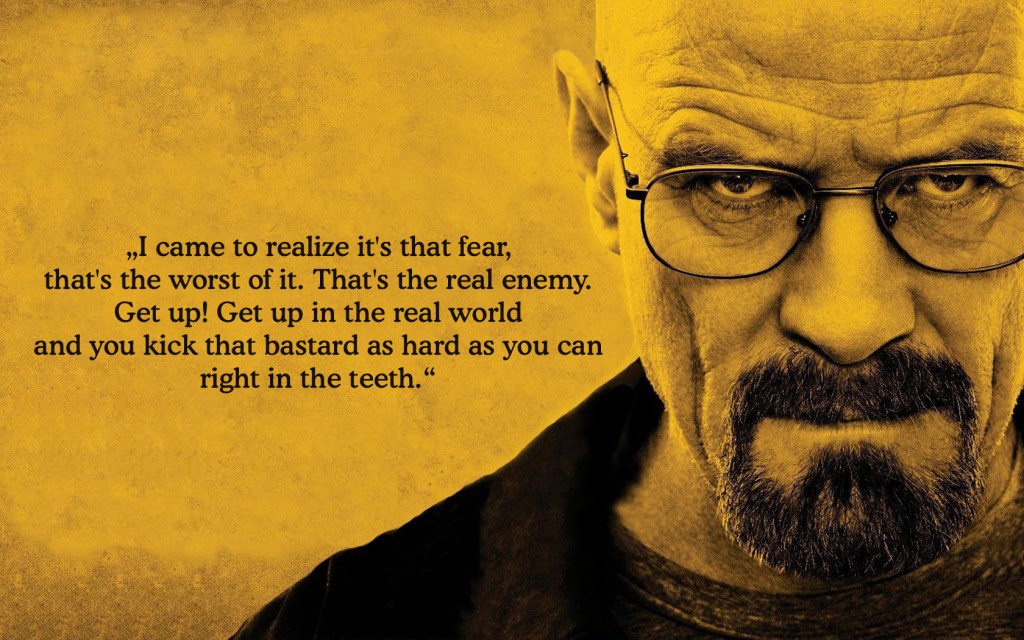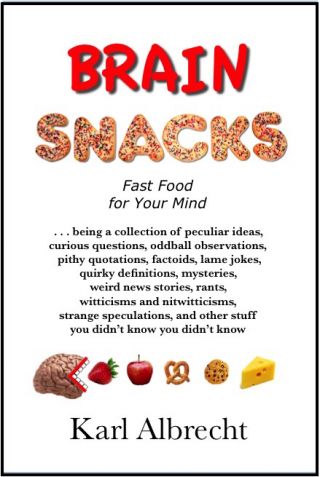 Franklin Delano Roosevelt said, “The only thing we have to fear, is fear itself.”
Franklin Delano Roosevelt said, “The only thing we have to fear, is fear itself.”
I think he was right: Fear of fear probably causes more problems in our lives than fear itself.
Let me explain what I mean by that.
Fear has gotten a bad rap among most people lately and everyone is afraid of being afraid. However, it’s not nearly as complicated as we try to make it. A simple and useful definition of fear is: An anxious feeling, caused by our anticipation of some imagined event or experience. Google defines fear as: an unpleasant emotion caused by the belief that someone or something is dangerous, likely to cause pain, or a threat.
Medical experts tell us that the anxious feeling we get when we’re afraid is a standardized biological reaction. It’s pretty much the same set of body signals, whether we’re afraid of getting bitten by a dog, getting turned down for a date, or getting our taxes audited.
Fear, like all other emotions, is basically information. It offers us knowledge and understanding of our psychological and biological status.
Types of Fear
According to Dr. Karl Albrecht there are only five types of fear, out of which almost all of our other so-called fears are manufactured. These are:
- Extinction — the fear of annihilation, of ceasing to exist. This is a more fundamental way to express it than just calling it “fear of death.” The idea of no longer “being” arouses a primary existential anxiety in all normal people. Consider that panicky feeling you get when you look over the edge of a cliff or tall building.
- Mutilation — the fear of losing any part of our precious bodily structure; the thought of having our body’s boundaries invaded, or of losing the integrity of any organ, body part, or natural function. Anxiety about animals, such as bugs, spiders, snakes, and other creepy things arises from fear of mutilation.
- Loss of Autonomy — the fear of being immobilized, paralyzed, restricted, enveloped, overwhelmed, entrapped, imprisoned, smothered, or otherwise controlled by circumstances beyond our control. In physical form, it’s commonly known as claustrophobia, but it also extends to our social interactions and relationships. Fear of prison would be a form of fear of loss of autonomy.
- Separation — the fear of abandonment, rejection, and loss of connectedness; of becoming a non-person — not wanted, respected, or valued by anyone else. This is where peer pressure comes into affecting how we act and react and why we think the way we do.
- Ego-death — the fear of humiliation, shame, or any other mechanism of profound self-disapproval that threatens the loss of integrity of the Self; the fear of the shattering or disintegration of one’s constructed sense of lovability, capability, and worthiness.
That’s all — just those five. They can be thought of as forming a simple hierarchy, or “feararchy”:

How These Types Affect Our Lives
Think about the various common labels we put on our fears. Start with the easy ones: fear of heights or falling is basically the fear of extinction (possibly accompanied by significant mutilation, but that’s sort of secondary). Fear of failure? Read it as fear of ego-death. Fear of rejection? That’s fear of separation, and probably also fear of ego-death. The terror many people have at the idea of having to speak in public is basically fear of ego-death. Fear of intimacy, or “fear of commitment,” is basically fear of losing one’s autonomy.
Some other emotions we know by various popular names are just aliases for these primary fears. If you track them down to their most basic levels, the basic fears show through. Jealousy, for example, is an expression of the fear of separation, or devaluation: “She’ll value him more than she values me.” At its extreme, it can express the fear of ego-death: “I’ll be a worthless person.” Envy works the same way.
Shame and guilt express the fear of separation and even ego-death. The same is true for embarrassment and humiliation.
Fear is often the base emotion on which anger floats. Oppressed people rage against their oppressors because they fear or experience loss of autonomy and even ego-death. The destruction of a culture or a religion by an invading occupier may be experienced as a kind of collective ego-death. Those who make us fearful will also make us angry. That’s why so many people hate government and politics; because they control through fear.
Religious bigotry and intolerance may express the fear of ego-death on a cosmic level, and can even extend to existential anxiety: “If my god isn’t the right god, or the best god, then I’ll be stuck without a god. Without god on my side, I’ll be at the mercy of the impersonal forces of the environment. My “ticket to heaven” could be canceled at any moment, without a reason.”
Some of our fears, of course, have basic survival value. Others, however, are learned reflexes that can be weakened or re-learned.
Summary
That strange idea of “fearing our fears” becomes less strange when we realize that many of our avoidance reactions such as turning down an invitation to a party if we tend to be uncomfortable in groups; failing to show up in court; or not asking for proof of evidence are instant reflexes; they’re reactions to the memories of fear. They happen so quickly that we don’t actually experience the full effect of the fear. We experience a “micro-fear”—a reaction that’s a kind of shorthand code for the real fear. This reflex reaction has the same effect of causing us to evade and avoid as the real fear. This is why it’s fairly accurate to say that many of our so-called fear reactions are actually the fears of fears.
When we let go of our notion of fear as the welling up of “evil forces within us”, the Freudian motif, and begin to see fear and its companion emotions as basically information, we can think about them consciously. And the more clearly and calmly we can articulate the origins of the fear, the less our fears will frighten us and control us.
Peace and prosperity,
Rob
Resources:
Dr. Karl Albrecht is an executive management consultant, coach, futurist, lecturer, and author of more than 20 books on professional achievement, organizational performance, and business strategy. He is listed as one of the Top 100 Thought Leaders in business on the topic of leadership.
He is a recognized expert on cognitive styles and the development of advanced thinking skills. His books Social Intelligence: The New Science of Success, Practical Intelligence: The Art and Science of Common Sense, and his Mindex Thinking Style Profile are widely used in business and education.
Originally a physicist, and having served as a military intelligence officer and business executive, he now consults, lectures, and writes about whatever he thinks would be fun.
Order Karl’s Latest Book, “Brain Snacks: Fast Food for Your Mind”






